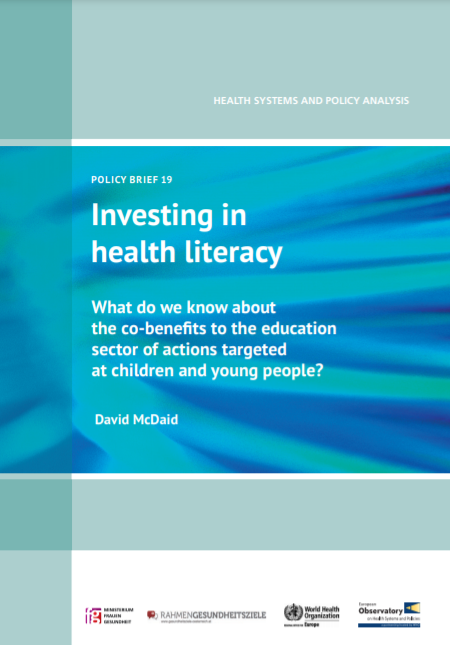
-
Source
Investing in health literacy: What do we know about the co-benefits to the education sector of actions targeted at children and young people?
Key messages:
- Poor health literacy is detrimental to health across the life course and up to 47% of the European population are thought to have poor or inadequate levels of health literacy.
- Effective health literacy interventions can positively influence education and academic performance, which can have long-term benefits across the life course.
- It is important to develop health literacy skills early in life. The promotion of health literacy for children and young people will typically be delivered outside the health sector, often in the education sector.
- Embedding health literacy within routine educational activities, aids implementation and additional costs may be considered a reasonable investment if the needs of the educational sector are also met.
- Having better evidence on effectiveness and economic benefits to other sectors can facilitate implementation by increasing the potential for buy-in by stakeholders:
- economic modelling can be used to make estimates of long-term costs and benefits as there are potential cost savings for the whole of society;
- the routine collection of data on education and health outcomes can also be used to look at the impact of initiatives over time;
- it is also important to take account of the differing delivery contexts when considering potential outcomes and challenges in implementation.
- Improved health and educational outcomes in school increase the potential for greater economic benefits for children when they reach adulthood as a result of enhanced career opportunities as well as better physical and emotional health, and these effects can be passed down to future generations.
Related resources




